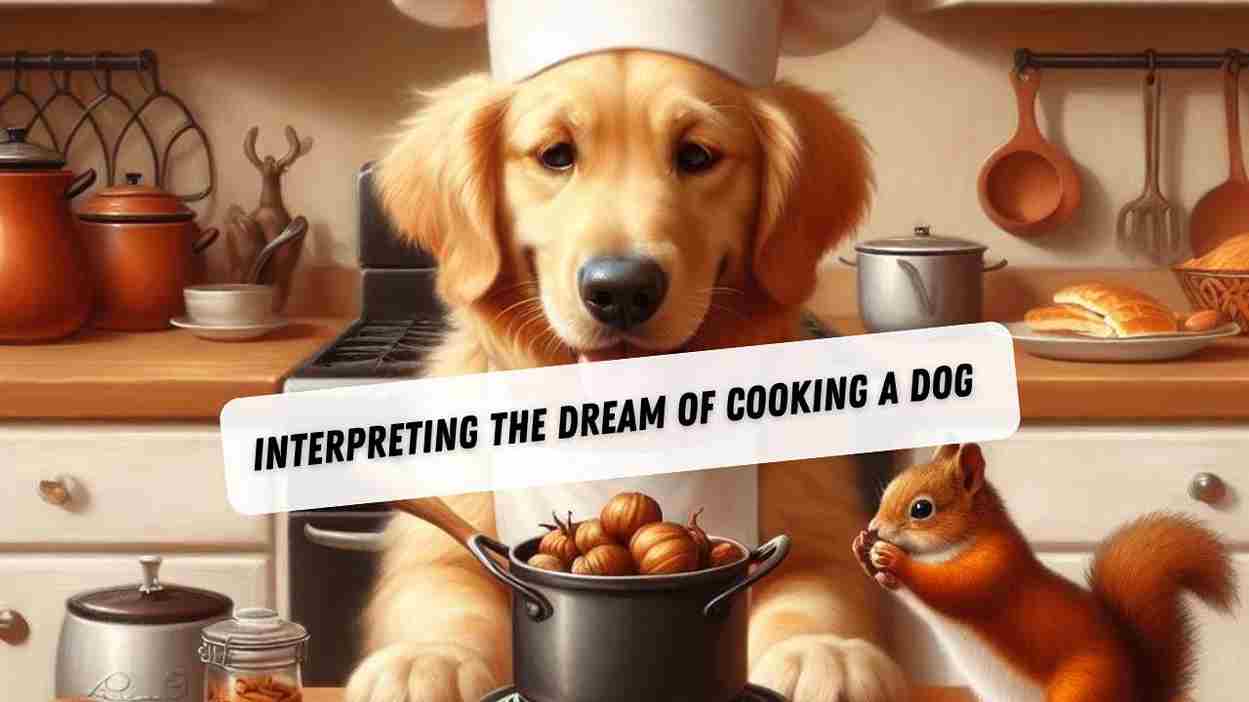Humans have always found dreams to be fascinating and mysterious. From ancient civilizations to modern psychologists, people have sought to understand the meaning behind these enigmatic experiences that unfold in the realm of our subconscious minds.
Dreams are often a reflection of our inner thoughts, fears, desires, and experiences. They can be bizarre, fantastical, or even disturbing at times, leaving us puzzled upon waking. One such unsettling dream that occasionally surfaces is the dream of cooking a dog.
While this may seem shocking or taboo, it’s crucial to explore the symbolism behind such dreams rather than taking them at face value.
1- Understanding Dreams
Before delving into the specific dream of cooking a dog, it’s essential to grasp the basics of dream interpretation.
Dreams occur during the rapid eye movement (REM) stage of sleep and are believed to serve various psychological functions, including processing emotions, consolidating memories, and problem-solving.
While dreams can be influenced by external factors such as stress or medication, they primarily originate from the subconscious mind.
2- Interpreting the Dream of Cooking a Dog
Dreams involving cooking a dog can evoke strong emotions and raise ethical concerns. However, it’s crucial to recognize that dreams are symbolic rather than literal.

In this context, cooking a dog may represent a deeper meaning related to loyalty, protection, or companionship.
3- Cultural Perspectives
The interpretation of dreams varies across cultures, and attitudes towards dogs differ significantly worldwide.
In some cultures, dogs are revered as loyal companions, while in others, they are viewed as food sources. Understanding cultural nuances is essential when analyzing dream symbolism.
4- Psychological Analysis
From a psychological standpoint, dreams are rich in symbolism and can offer insights into our subconscious desires and fears.
Sigmund Freud, the father of psychoanalysis, believed that dreams were a window into the unconscious mind and often represented repressed desires. Carl Jung expanded on Freud’s ideas, suggesting that dreams contain archetypal symbols that are universal across cultures.
5- Ethical Considerations
Dreams of cooking a dog may trigger moral dilemmas and raise ethical questions about our treatment of animals. While dream content is not indicative of one’s character, it’s essential to reflect on the underlying emotions and values portrayed in such dreams.
6- Impact of Personal Experiences
Personal experiences and traumas can significantly influence dream content. For example, individuals who have had positive interactions with dogs may have different dream associations than those who have experienced fear or trauma related to canines.
7- Common Themes in Dreams
Dreams often incorporate common symbols that reflect our subconscious thoughts and emotions. Dogs, in particular, are associated with loyalty, protection, and companionship, making them prevalent symbols in dream interpretation.

8- Animal Symbolism
Animals frequently appear in dreams and carry symbolic meanings that vary depending on cultural and personal associations. Dogs, for instance, can represent loyalty, friendship, or instinctual behavior, depending on the context of the dream.
Read more about Friendly Dog Dream Meaning.
9- Dream Analysis Techniques
Various techniques can aid in interpreting dreams, including keeping dream journals, practicing mindfulness, and seeking guidance from dream therapists or psychologists.
By exploring recurring themes and symbols in dreams, individuals can gain deeper insights into their subconscious minds.
10- Seeking Professional Help
While many dreams can be interpreted independently, seeking professional help may be beneficial for complex or recurring dreams.
Dream therapists and psychologists are trained to analyze dream content and provide guidance on understanding and addressing underlying issues.
11- Debunking Myths
Dream interpretation is often shrouded in myths and misconceptions. Contrary to popular belief, dreams are not prophetic and do not predict the future.
Additionally, dream symbolism is subjective and can vary based on individual experiences and cultural backgrounds.
FAQs
Can dreams predict the future?
Dreams are not prophetic and do not predict future events. They are a reflection of our subconscious thoughts and emotions.
Why do we forget our dreams?
Dream forgetting is a common phenomenon attributed to the brain’s inability to store memories during sleep transitions.
Is dream interpretation subjective?
Dream interpretation is subjective to some extent, as it is influenced by personal experiences, cultural beliefs, and individual associations with symbols.
Can recurring dreams have different meanings?
Recurring dreams may have consistent themes or symbols, but their interpretations can vary depending on the individual’s life circumstances and emotional state.
Are there any benefits to lucid dreaming?
Lucid dreaming, where the dreamer is aware they are dreaming, can offer opportunities for self-exploration, creativity, and problem-solving in a safe, controlled environment.
Also Read: Dog Vomiting Dream Meaning.
Conclusion
Dreams, including those of cooking a dog, offer a glimpse into the complexities of the human psyche.
While such dreams may initially provoke discomfort or confusion, exploring their symbolic meaning can lead to profound insights and self-awareness.
By embracing the symbolism embedded within our dreams, we can better understand ourselves and navigate the subconscious landscape of our minds.









